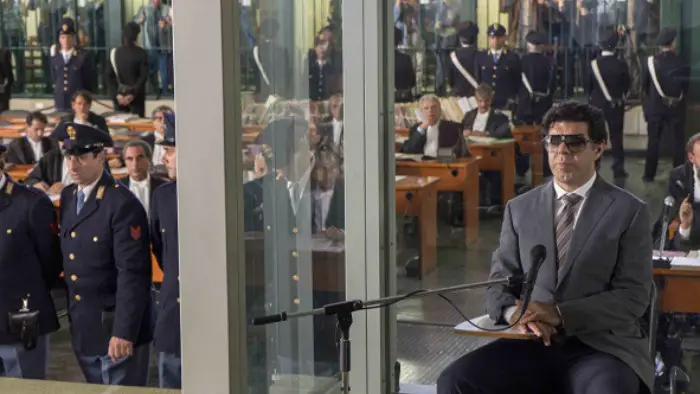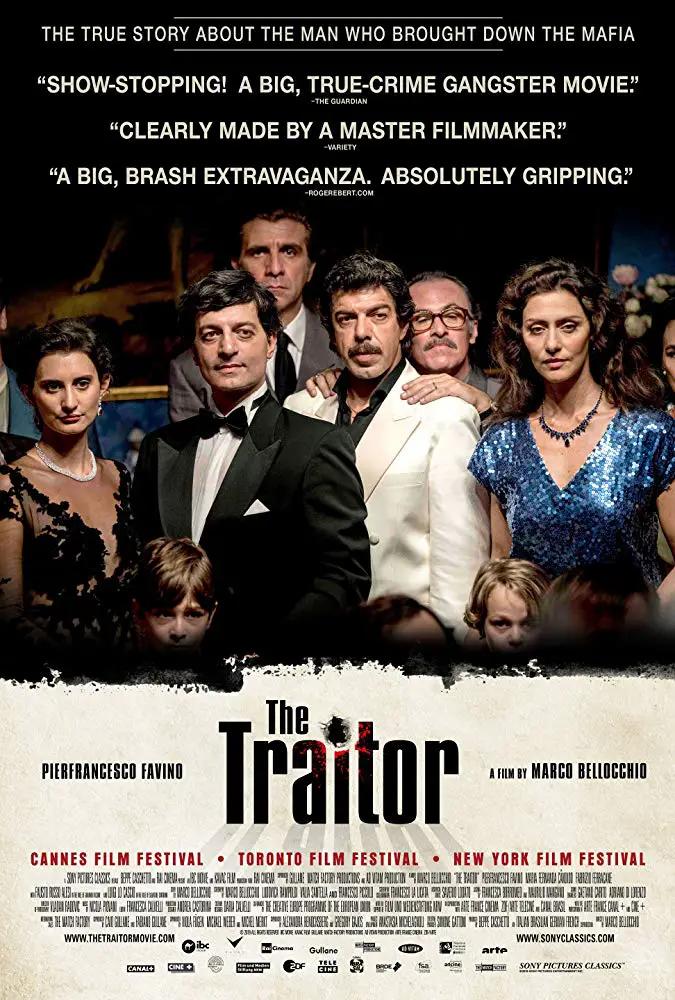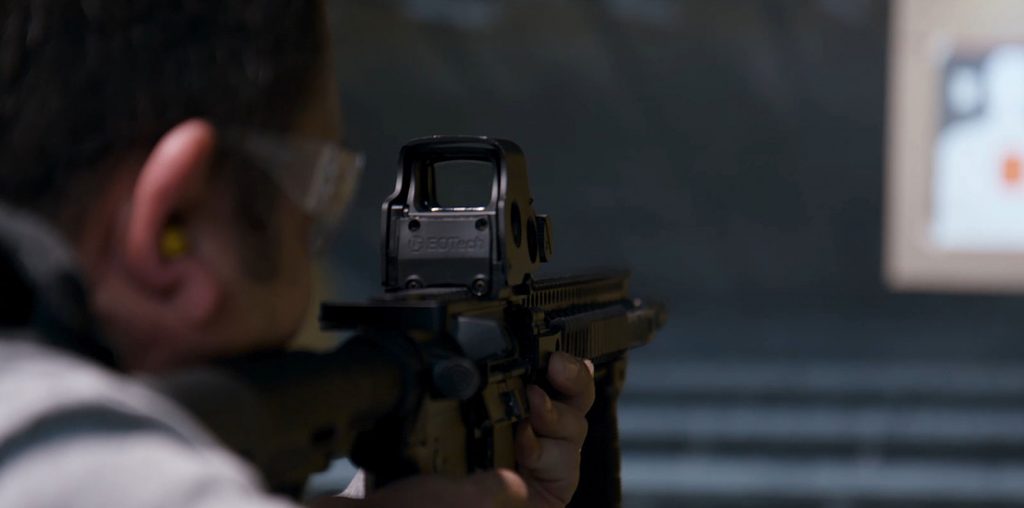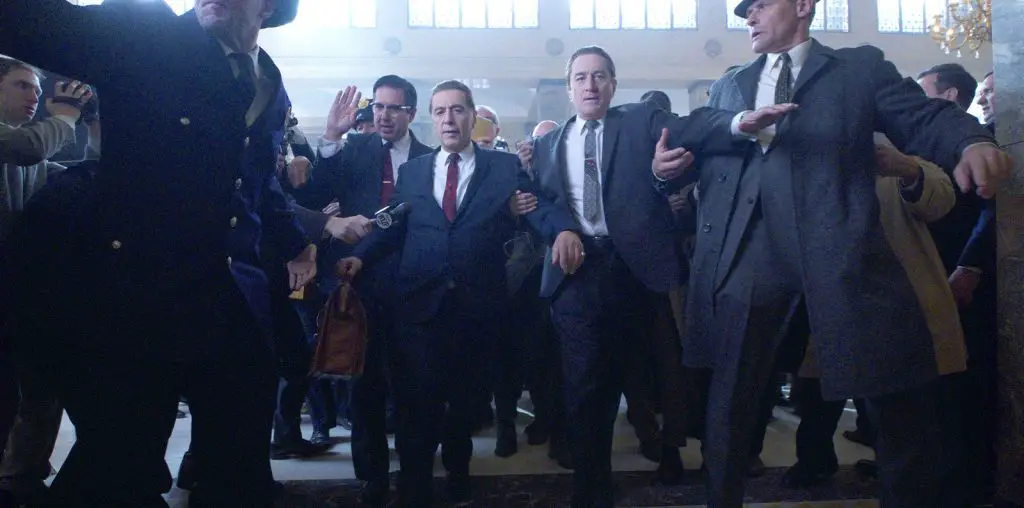
Director Marco Bellocchio’s The Traitor proves a fantastic way to start off the year of the rat. In the 1980s, Tommaso Buscetta became one of the first members of the mafia—or La Cosa Nostra, as some might prefer—to collaborate with authorities and offer up the goods on the criminal organization’s inner workings. His testimony appears to have been a major contributor to the mafia’s current state of obscurity. You could say he was the catalyst that turned the pinstripe suits of Vito Corleone into the track pants of Tony Soprano. Fifteen years after Soprano met his fate, I wonder what the mafia is wearing now. Matching pajamas?
Buscetta’s reason for talking comes on the heels of a large-scale mob war, in which he took a neutral position. Despite having little or nothing to do with the war, Buscetta’s family, including his two sons, got caught in the crossfire. This irrevocably shattered whatever illusions Buscetta had of the mafia’s internal code of honor. So he took one of the jagged, broken pieces and cut the mafia’s throat with it. After these events, which disenchanted Buscetta more than anything the mob had done previously, it’s no surprise that he seized the opportunity to make a deal with the authorities and let the stories flow.

“Buscetta’s reason for talking comes on the heels of a large-scale mob war…”
Such an operatic, emotionally complex story seems like a perfect fit for the mob movie canon. It leans into the old-world allure of a fringe brotherhood that cultivates love, respect, and necessary force, as well as provides a navigable power structure, family, and business all in one. But as the veil is pulled back, you realize that’s just the elevator pitch. What the mafia is, whether from the very beginning or just toward the end, I don’t know, is a bunch of nobodies looking to be somebodies, and fast. It’s a high-risk/high-reward game where the house doesn’t always win, but you always lose.
Yet, somehow, The Traitor does everything it can to make all of this as uninteresting as possible. It has a television movie quality to it as if it’s a dramatization of a newspaper article, rather than something cinematic. You don’t get a sense of mafia history or what Buscetta’s actions really mean for the mob or him as an individual. The whole movie is like that old graphic where the airplane leaves a dotted line behind it as it travels to different points around the map. We follow Buscetta from one event to the next, but The Traitor never thinks to stop and dig in. This is an “and then” movie. It’s the opposite of The Irishman.
That’s not to say The Traitor doesn’t have its moments. There are some fine, if unoriginal executions. The scenes in the courtroom that looks like a UFC octagon are the movie at its best, particularly when Buscetta and another mobster cross-examine each other. It quickly turns into a verbal slap fight: petty and foolish as hell. You know, like real full-time crooks. It’s the part-time crooks that have it figured out.

"…he was the catalyst that turned the pinstripe suits of Vito Corleone into the track pants of Tony Soprano."


